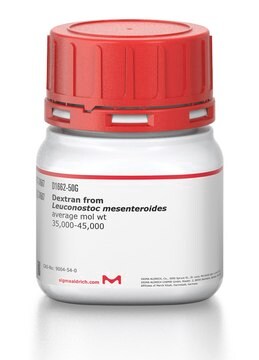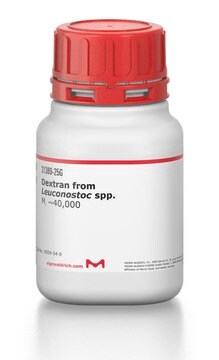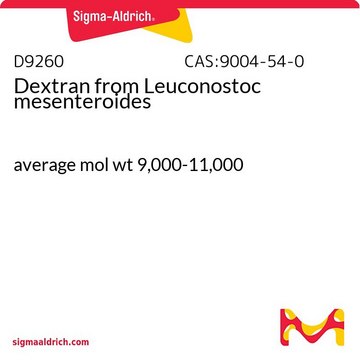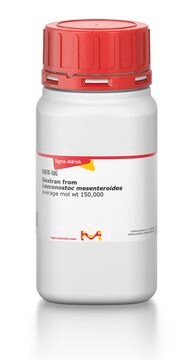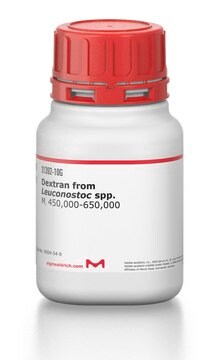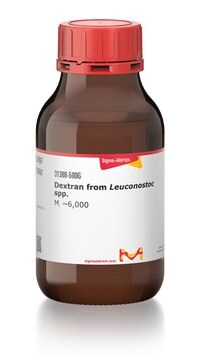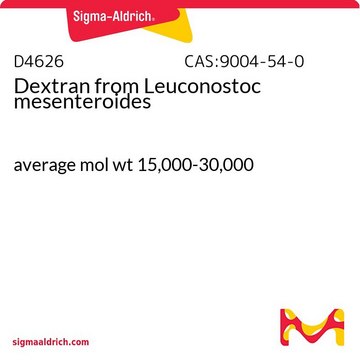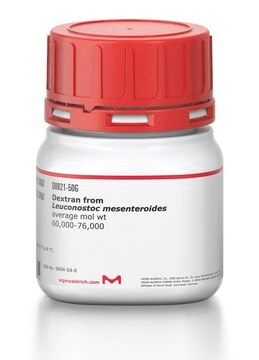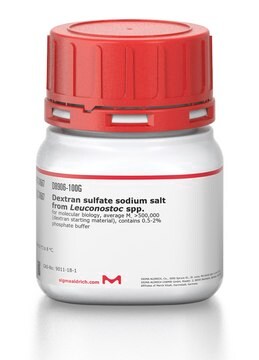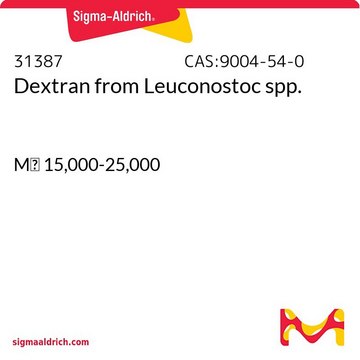D3759
Dextran from Leuconostoc mesenteroides
average mol wt 48,000-90,000
About This Item
Recommended Products
biological source
bacterial (Leuconostoc mesenteroides)
Quality Level
form
powder
optical activity
[α]/D 199°
mol wt
average mol wt 48,000-90,000
color
white
solubility
H2O: 50 mg/mL, clear to very slightly hazy, colorless to faintly yellow
InChI
1S/C18H32O16/c19-1-5(21)9(23)10(24)6(22)3-31-17-16(30)14(28)12(26)8(34-17)4-32-18-15(29)13(27)11(25)7(2-20)33-18/h1,5-18,20-30H,2-4H2
InChI key
FZWBNHMXJMCXLU-UHFFFAOYSA-N
Looking for similar products? Visit Product Comparison Guide
Application
Dextrans of less than 60,000Da are generally considered low molecular weight dextrans. Low molecular weight dextrans are often preferred versus high molecular weight dextrans due to their viscosities, aggregation and permeation properties. High molecular weight, water-soluble, dextran polymers have been used in a wide variety of biomedical applications. Dextran (48,000-90,000) may be used to induce blood aggregation and as a viscosity plasma expander (HVPE).
Other Notes
Storage Class Code
11 - Combustible Solids
WGK
WGK 2
Flash Point(F)
Not applicable
Flash Point(C)
Not applicable
Personal Protective Equipment
Regulatory Listings
Regulatory Listings are mainly provided for chemical products. Only limited information can be provided here for non-chemical products. No entry means none of the components are listed. It is the user’s obligation to ensure the safe and legal use of the product.
JAN Code
D3759-2KG:
D3759-50G:
D3759-1KG:
D3759-500G:
D3759-100G:
D3759-VAR:
D3759-BULK:
Certificates of Analysis (COA)
Search for Certificates of Analysis (COA) by entering the products Lot/Batch Number. Lot and Batch Numbers can be found on a product’s label following the words ‘Lot’ or ‘Batch’.
Already Own This Product?
Find documentation for the products that you have recently purchased in the Document Library.
Customers Also Viewed
Our team of scientists has experience in all areas of research including Life Science, Material Science, Chemical Synthesis, Chromatography, Analytical and many others.
Contact Technical Service